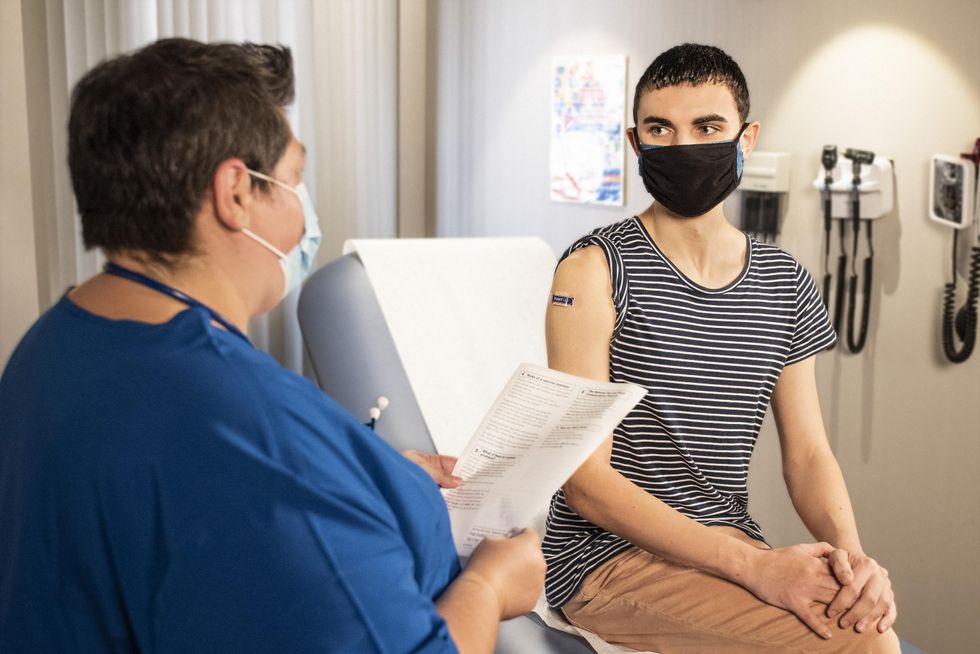It is your responsibility as a medical practitioner to make sure that your patients experience safety and value throughout their appointments. When patients feel appreciated and respected, they are more likely to trust you with their health. Making patients feel comfortable is a key aspect of providing quality medical care. Hence, maintaining a positive relationship with your patients should be a top priority in your practice.
The following advice can help you develop trust with your patients and gain their respect:
1. Always be transparent about your hospital fee structure.
Don't ignore or avoid sensitive issues (e.g., financial) when discussing treatment plans with your patients. Providing your patients with the price of your services is a crucial first step in establishing confidence. Many patients are hesitant to pay out of pocket for their medical bills because they worry about the cost of care.
By giving your patients clear details about your fees, you can help them feel more at ease about paying your bill and avoid surprise fees later. In addition, patients will appreciate knowing exactly how much money they owe before they even receive treatment. Make an effort to make your bill as simple to understand as you can.
2. Spend time getting to know your patients personally in order to develop a solid rapport with them.
Inquire about the patient's personal life and how their condition impacts them on a daily basis. Inquire about their objectives for your treatment strategy. Establishing a trusting relationship will enable you to better understand the needs of your patients and address their concerns more effectively. It will also make the patient feel more comfortable opening up to you and asking for help when they need it.
Being a good listener may greatly enhance your ability to connect with patients and provide better treatment. Remember, a big part of being a medical practitioner is caring for people -- not just their bodies but their souls as well.
3. Show your patients that you care about them by taking the time to listen to their concerns and address their questions honestly.
Listen carefully to your patients' concerns and opinions so that you can deliver high-quality care that meets their needs. Talk with your patients about their treatment options and make sure they understand the advantages and disadvantages of each choice. Encourage your patients to communicate any questions or concerns they may have to you.
Be responsive to your patients' needs and keep communication channels open at all times so that they feel like they can come to you for help if they need it. Make sure you understand the problem your patient is facing and provide relevant suggestions to help them find a solution. Make sure your patients feel respected and comfortable while in your office. This will help make them more willing to follow your instructions and fully participate in your treatment plan.
4. Educate your patients about their health and the treatments they need to improve their quality of life.
Many times, patients are more receptive to medical information when it comes from their doctor rather than from other sources such as the Internet or their friends and family. Take the time to educate your patients about the various treatments available to them and answer any questions they may have about your recommendations. This will help ensure that your patients fully understand the nature of their illness and come to understand why it's important to follow the doctor's orders.
At the same time, don't be afraid to let your patients know that you are concerned about their health and are willing to do what it takes to help them get better. Your patients will appreciate the time and effort that you put into helping them through their treatment and recovery process.
They will want to return in the future for other medical services if they are happy with the level of care they received from you. Educating them will increase patient satisfaction in your practice and help your patients get the care that they need.
5. Remain calm and composed when dealing with patients during stressful and emotional situations.
Firstly, people feel safe around a calm person. If someone is freaking out all the time and running around the hospital, the other employees may start to get worried, too. Secondly, your patients will appreciate and respect you more if you're able to keep cool in difficult situations.
For example, if you hear a patient calling for help in the emergency room and you see that another nurse is trying to calm him down, step in and help them. This will make the patient feel more comfortable and show that you're capable of helping no matter how difficult the situation may be. It also shows that you value the well-being of your patients and are willing to go the extra mile to make sure they are comfortable during their stay at the hospital.
6. Try to reduce the wait times at your healthcare facilities.
Patient engagement statistics say that about 85% of individuals think that waiting times affect a doctor's office visit in a considerable way. That's a whole lot of people! And it turns out that even a small amount of time can make a big difference when it comes to patient satisfaction - a recent poll found that more than 80% of patients consider delayed care to be poor service.
Poor service equals your patients feeling unvalued -- and no one wants that! Therefore, it's essential to take action to cut down on the time patients have to wait in the waiting room.
7. Make better use of contemporary technologies to connect and communicate with your patients.
As part of your strategy to improve patient engagement, you have to give patients multiple ways to get in touch with your practice. Social media has completely changed the way we do business these days, so it's important to make sure your patients can easily connect with you online as well. This will make it easier for you to remain in touch with them and respond to their inquiries without their having to call or come to your office in person.
Many hospitals are investing in chatbot solutions to help streamline patient care and reduce waiting times. These robots can help answer basic questions and schedule appointments for patients, freeing up your staff to focus on more complex cases.
8. Send out automated messages and follow-ups.
Many patients feel a little overwhelmed after first arriving in the hospital for their procedure or treatment. Sending out a welcome message can help them feel more at ease and let them know that they're in good hands. Follow-up messages can also be helpful, reminding patients of upcoming appointments and making sure they haven't forgotten anything important.
Using automated messaging software is a great way to keep your patients engaged. The best part is that it does not require much extra work on your part. Plus, it will make them feel more valued and safer as they are being paid attention to.
9. Create an online knowledge base for your patients to access.
A lot of information about your practice is available in written form. But that information is not accessible to your patients. You have to take time and effort to send them educational materials. Or ultimately resort to sharing information with them during office visits.
By creating an online portal for your patients to access, you can save yourself that time. It will make the process of educating your patients much more efficient. Keeping all of your information in one location can also be beneficial to prevent information loss.
10. Offer webinars to educate your patients about your services.
First of all, it will provide you and your facilities with widespread awareness. Secondly, a direct result of that newly-gained recognition will be your patients feeling safer in your hands. Knowing more about your procedures and the level of care that you offer will take away some of their fears. It will make them feel more at ease about the surgery they will soon be having.
You can talk about the latest developments in your field and answer any questions that your patients have about them. You can show real patient success stories. Or you can discuss how care in your facility has improved the lives of your patients. Remember, the goal is to become a familiar face to your future patients.
Conclusion
Ultimately, a hospital's role is to provide medical care to its patients and also to be a major support system. Be there for your patients while they go through treatment and recovery. They will be counting on you to help them overcome their fears and worries. Help them so that they feel better and have a more positive outlook for the future.
Take the time to implement some of the tips that we have suggested here. You'll be well on your way to developing a successful relationship. We hope that this will benefit both you and your patients for years to come!
















